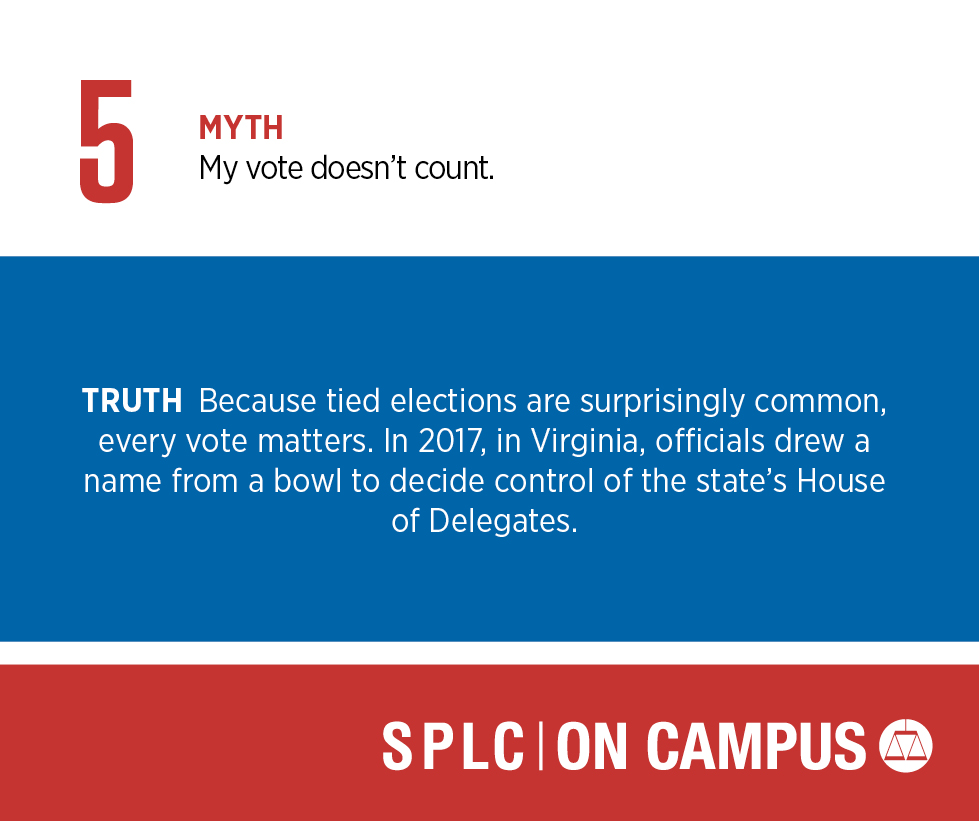
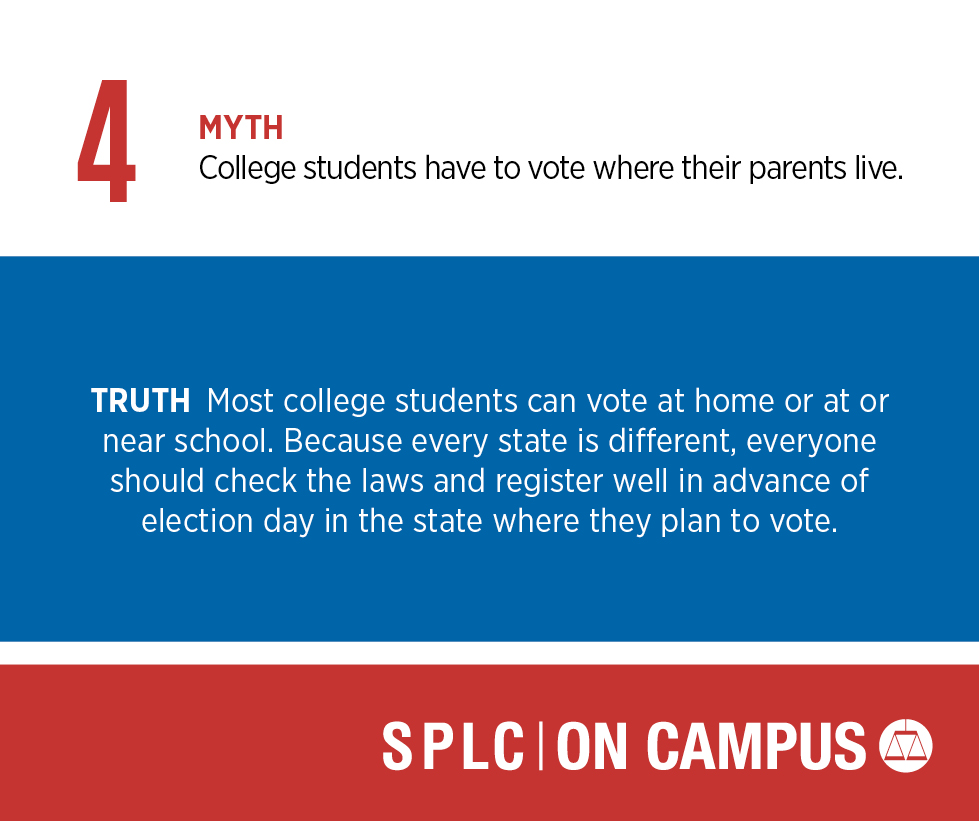
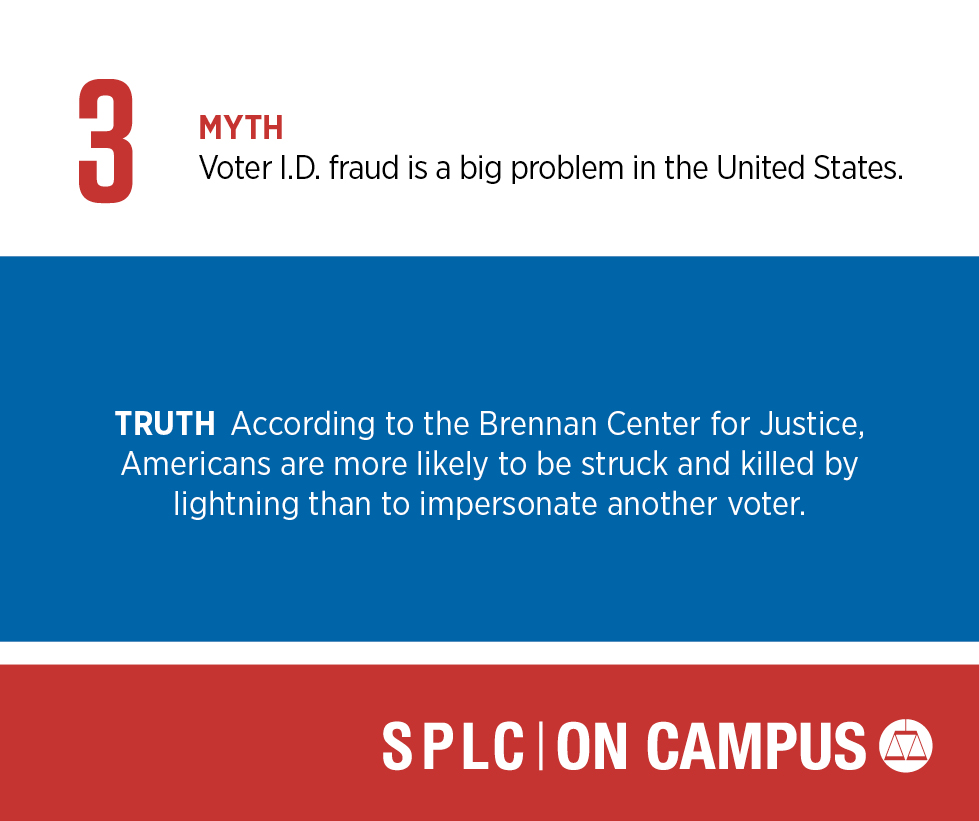
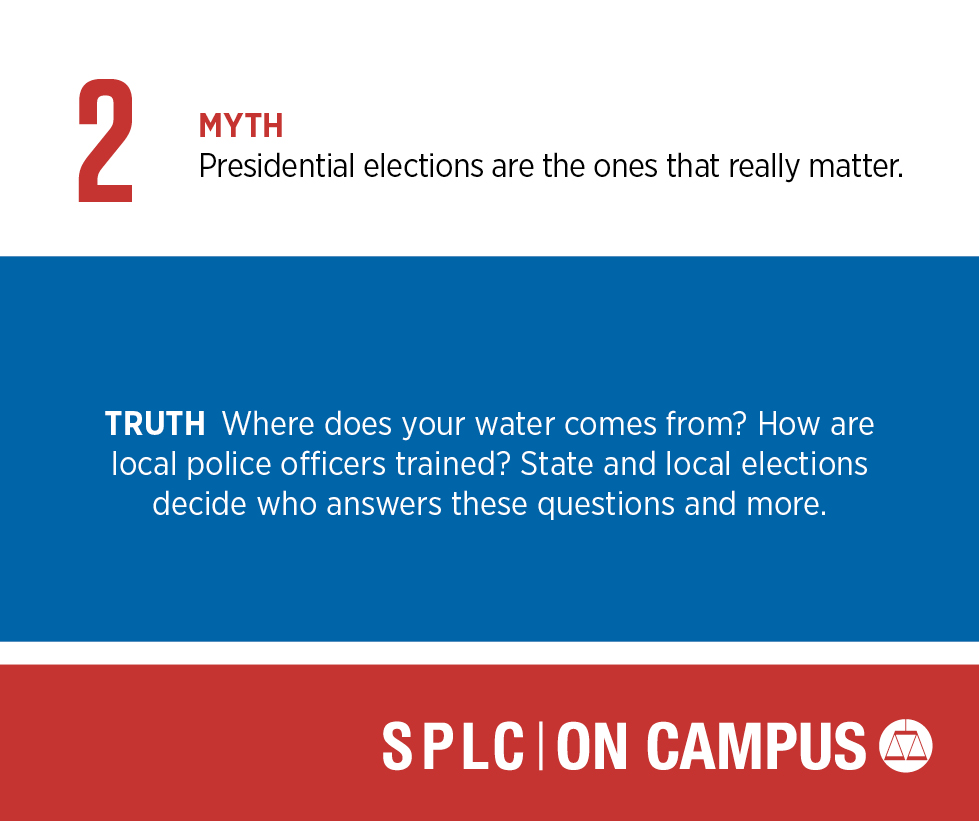
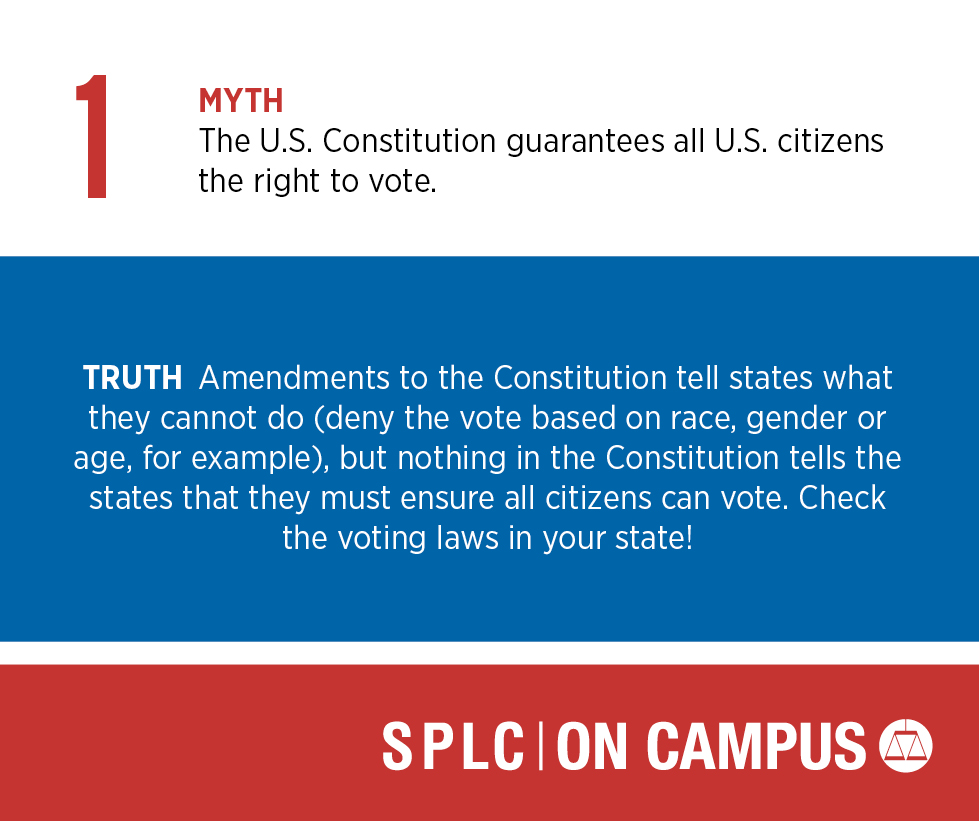
By Julia Delacroix, Teaching Tolerance
As we work to help teachers educate students about democracy and the significance of voting, one thing we hear all too often is that young people don’t register and vote. It’s 18-25 year-olds who will have to live with the consequences of the decisions our elected officials make, but they have the lowest voter turnout of any demographic group.
We think there are a few reasons why this is the case. One is that young people often aren’t asked to register, and they don’t know how. We’re working on that. Another reason, though, is that they tend to think voting just isn’t that important. In fact, young people tend to buy into several myths about voting.
Our goal is to set the record straight. We want everyone to feel more empowered to get out and vote and feel confident encouraging friends and family to do the same.
Here are the top 5 myths we frequently hear—and the truths behind them.
Myth #5—My vote doesn’t count.
Truth—Every vote is counted; every vote matters. You’ve heard it a thousand times before because it’s true. For example...
In 2017, a perfect tie in one race meant that party control of the House of Delegates in Virginia was decided by drawing a name out of a hat.
In the primaries in 2018, 59 races and ballot initiatives in Ohio were close or settled by only one vote.
In fact, close votes are so common that most states have rules on the books for dealing with one. Your vote could be the difference between an elected official chosen by the people and one chosen by cutting a deck of cards, drawing straws or even rolling dice.
Myth #4—College students have to vote where their parents live.
Truth—College students have dual residency—they can vote at home or at (or near) school.
When deciding where you want to vote, think of which state has a greater impact on your day-to-day affairs or which policies and politicians on the ballot you would most like to support. You can also consider where your vote would have the greatest impact.
But no matter where you cast your ballot, you’ll need to register.
And registration dates are fast approaching. The deadline varies, but October 9 is the deadline in many states, so the clock is ticking. The good news is that you still have time, and that many states have online voter registration. (Don’t wait until the last minute, though! Some states allow voters to register until midnight of the last day, while others cut off at 5 or 9 p.m.)
Myth #3—Voter fraud is a big problem in the United States.
Truth—Absolutely false.
Voter fraud is so rare that a report from the Brennan Center for Justice claims that an American is more likely to be struck and killed by lightning than to commit the kind of voter fraud that I.D. laws are designed to prevent. In fact, one study of over a billion ballots over 14 years found only 31 credible instances of voter fraud.
Myth #2—Presidential elections are the ones that really matter.
Truth—Local politicians and the policies they set have a tremendous impact on your day-to-day life. We elect governors, mayors, prosecutors, judges, state and national representatives and more during midterm elections. Do you care about where your water comes from? How your police are trained? Which crimes are prosecuted? If you go to a public college or university, your state senators and representatives set important policy that can affect course offerings and tuition costs. If you have student loans, your federal senators and representatives help set terms and conditions.
This year’s election will affect your life just as much as the presidential races in 2016 & 2020, but—since fewer people vote in midterms—your vote will actually make more of a difference this November.
Myth #1—The U.S. Constitution guarantees every citizen the right to vote. Truth—States are in charge of voting laws, and while amendments to the Constitution tell states what they cannot do (deny the vote based on race, gender or age, for example), nothing in the Constitution tells the states what they must do (make sure all citizens can vote). In many states, for example, people aren’t allowed to participate in elections if they’ve been convicted of a felony or if they don’t have a state-issued I.D.
No matter where you live, you can support changes that make voting easier and more accessible for everyone in your state. Wish your state had same-day voter registration? Wish it were easier to register online? What about restoring voting rights to people convicted of felonies? (This midterm election Florida will vote on just this issue, so Floridians, especially, make sure you do your research and cast your vote!) The good news is that you have a say in all of these policies. But if you want your voice heard, you’ll have to vote.
Voting is an essential part of our democracy, and we can’t allow myths and misconceptions to shut us up—or shut us out of the decisions that shape our nation. Check your registration today, make a plan to vote in November, and take a friend—or twenty—with you to the polls.
And when you hear someone spreading a myth about voting, speak up! Now you have the truth, it’s up to you to share it.
